Organizational Map
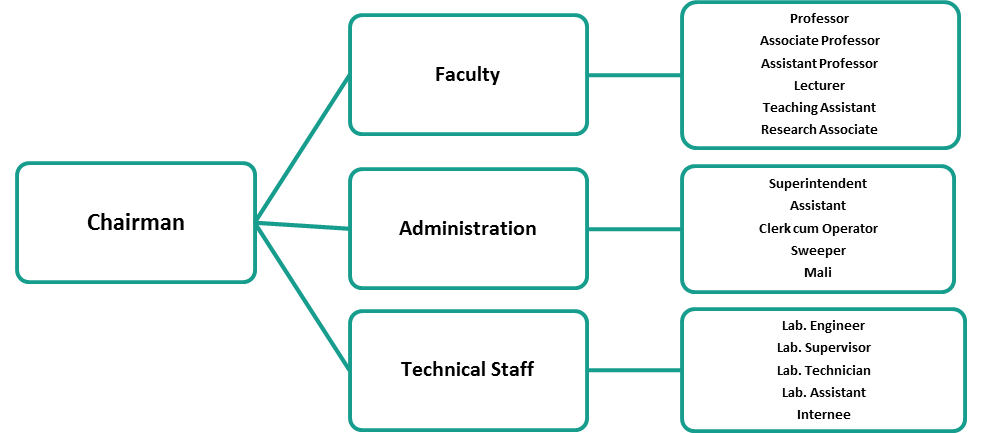
Mehran University of Engineering & Technology established a separate Software Engineering department realizing the need of this degree program for the upcoming era. Initially the department was combined with the Department of Computer Systems Engineering but at present the Department of Software Engineering has its own building which was inaugurated by Governor of Sindh Dr. Ishrat- ul-Ibad Khan on Saturday 16th April 2011. The Department of Software engineering, aims to provide high quality of education with the best current practices, theory and research which integrate professional studies in the field of software engineering.
The Bachelor of Science in Artificial Intelligence envisages impart theoretical and practical skills to graduates that would equip them with skills and knowledge that can be easily transferred to research and industry for national development.
The BS in AI program is designed to produce next generation of software engineering professionals with expertise in the specialized domain of artificial intelligence. The curriculum is designed to cater to the diverse application areas of AI such as speech processing, natural language processing, and deep learning.
A Computing Professional graduate
1. Performs his/her computing professional role based on fundamental computing knowledge and analytical skills in the Software Industry and related fields[SO 1,2,3,4,5].
2. Adheres to professional responsibilities with societal aspects and ethical conduct in multicultural environment with continual improvement[SO 1, 6, 8, 9, 10].
3. Works effectively as a team lead or team member in challenging ventures[SO 6, 7, 10].
4. Communicates technical and managerial information efficiently in oral and written forms[SO 1, 6, 7, 9, 10].
1. Academic Education: To prepare graduates as computing professionals.
2. Knowledge for Solving Computing Problems: Apply knowledge of computing fundamentals, knowledge of a computing specialization, and mathematics, science, and domain knowledge appropriate for the computing specialization to the 16 abstraction and conceptualization of computing models from defined problems and requirements.
3. Problem Analysis: Identify, formulate, research literature, and solve complex computing problems reaching substantiated conclusions using fundamental principles of mathematics, computing sciences, and relevant domain disciplines.
4. Design/Development of Solutions: Design and evaluate solutions for complex computing problems, and design and evaluate systems, components, or processes that meet specified needs with appropriate consideration for public health and safety, cultural, societal, and environmental considerations.
5. Modern Tool Usage: Create, select, adapt and apply appropriate techniques, resources, and modern computing tools to complex computing activities, with an understanding of the limitations.
6. Individual and Team Work: Function effectively as an individual and as a member or leader in diverse teams and in multi-disciplinary settings.
7. Communication: Communicate effectively with the computing community and with society at large about complex computing activities by being able to comprehend and write effective reports, design documentation, make effective presentations, and give and understand clear instructions.
8. Computing Professionalism and Society: Understand and assess societal, health, safety, legal, and cultural issues within local and global contexts, and the consequential responsibilities relevant to professional computing practice.
9. Ethics: Understand and commit to professional ethics, responsibilities, and norms of professional computing practice.
10. Lifelong Learning: Recognize the need, and have the ability, to engage in independent learning for continual development as a computing professional.

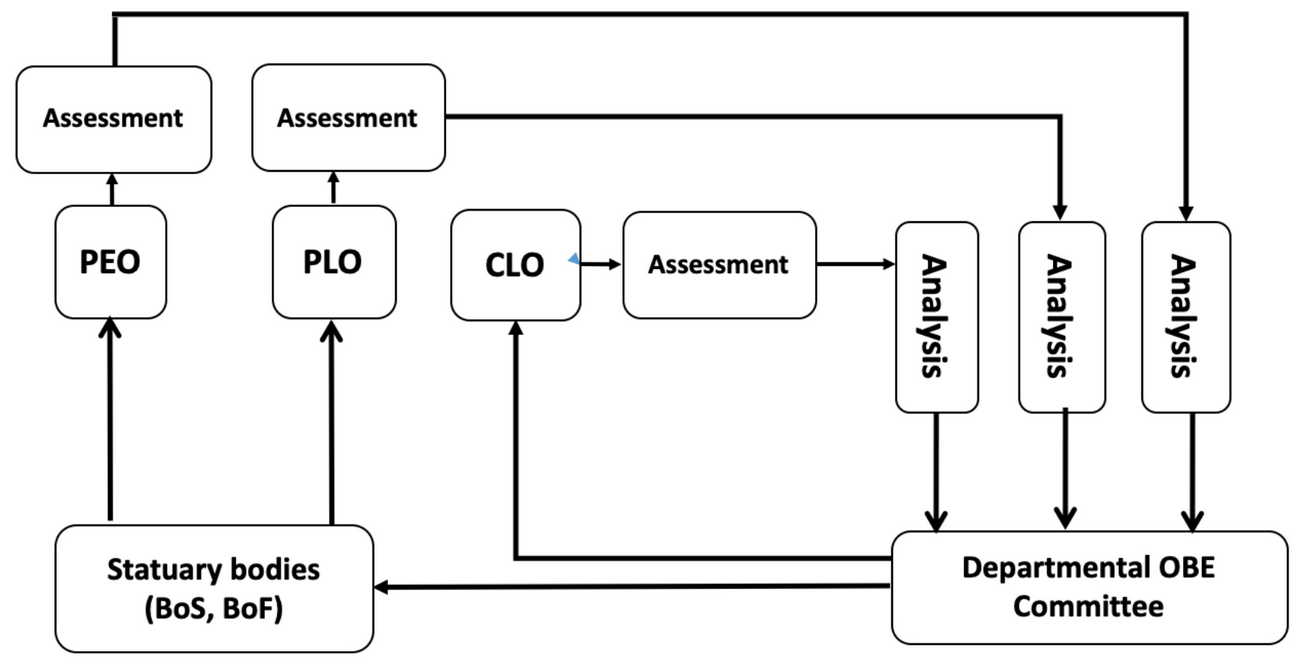
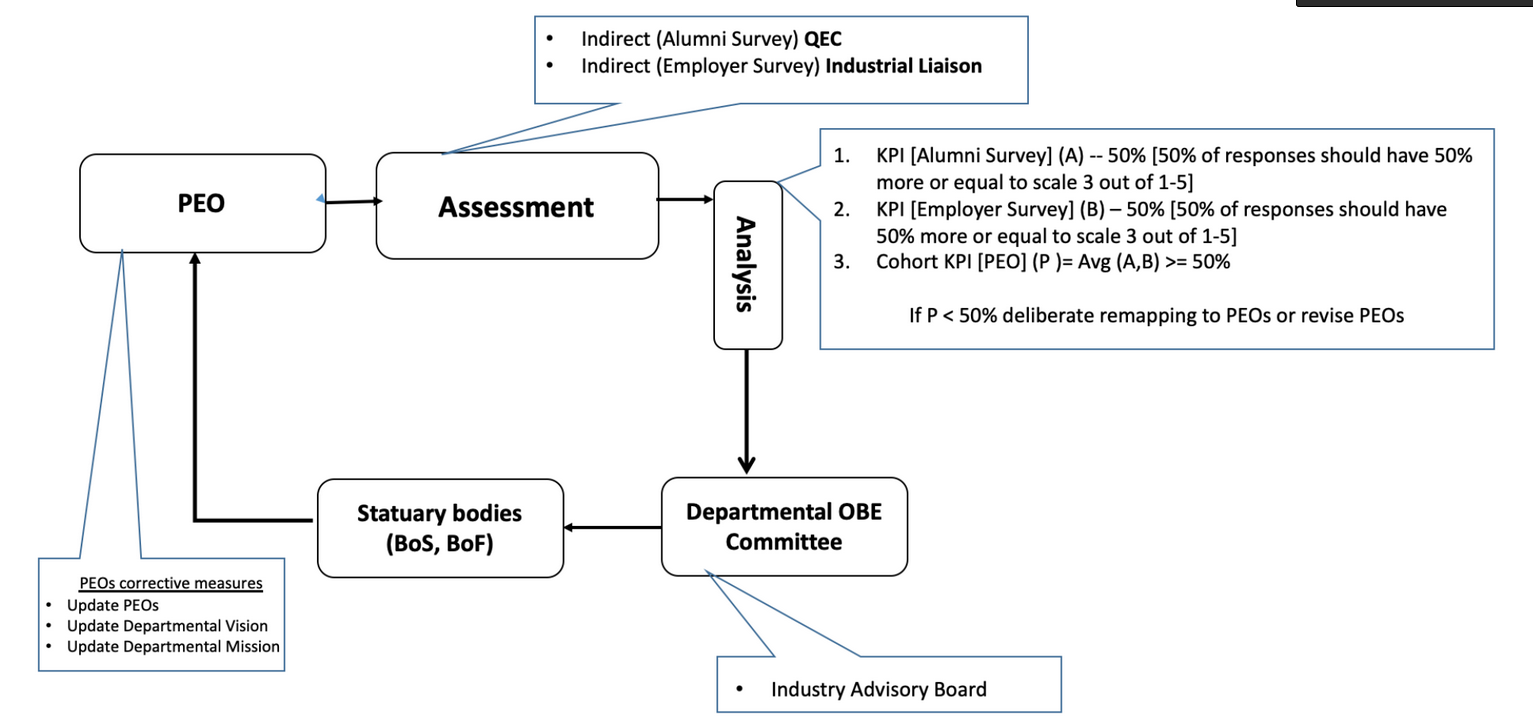
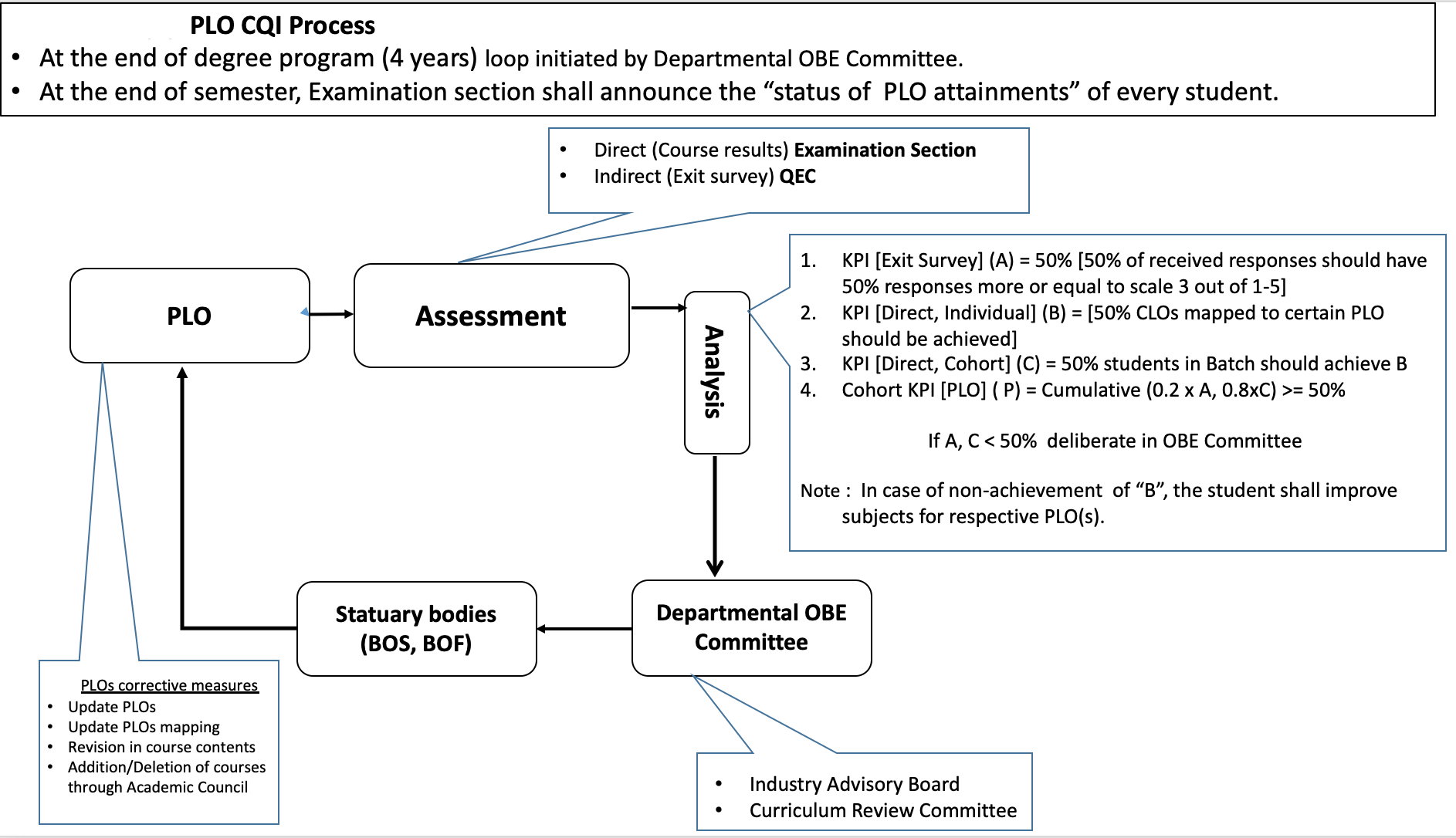
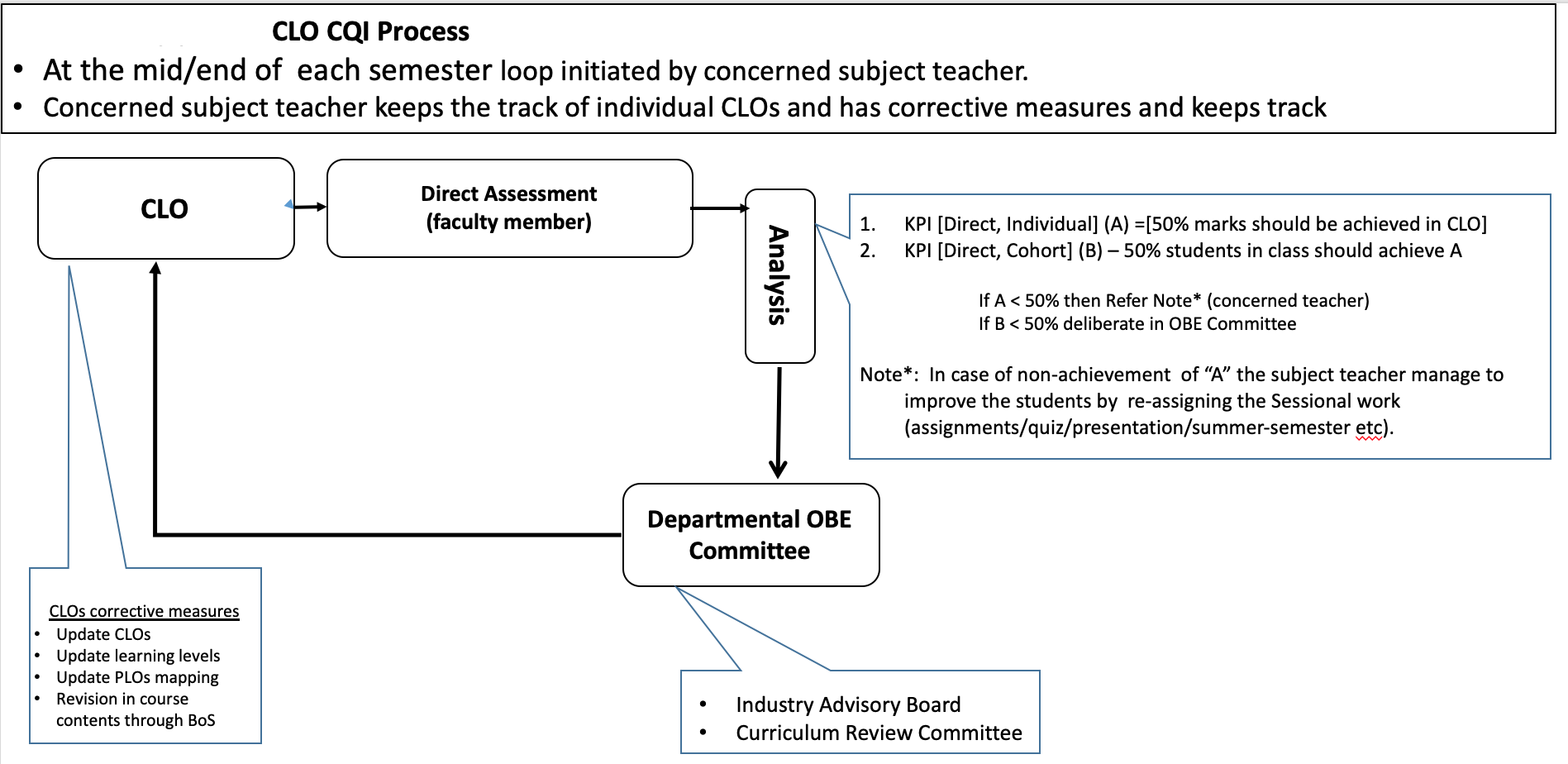
| Batch | Sections | Class Advisor |
|---|---|---|
| 23BS(AI) | 1 | Engr. Junaid Baloch |
| 24BS(AI) | 1 | Engr. Amirita Dewani |